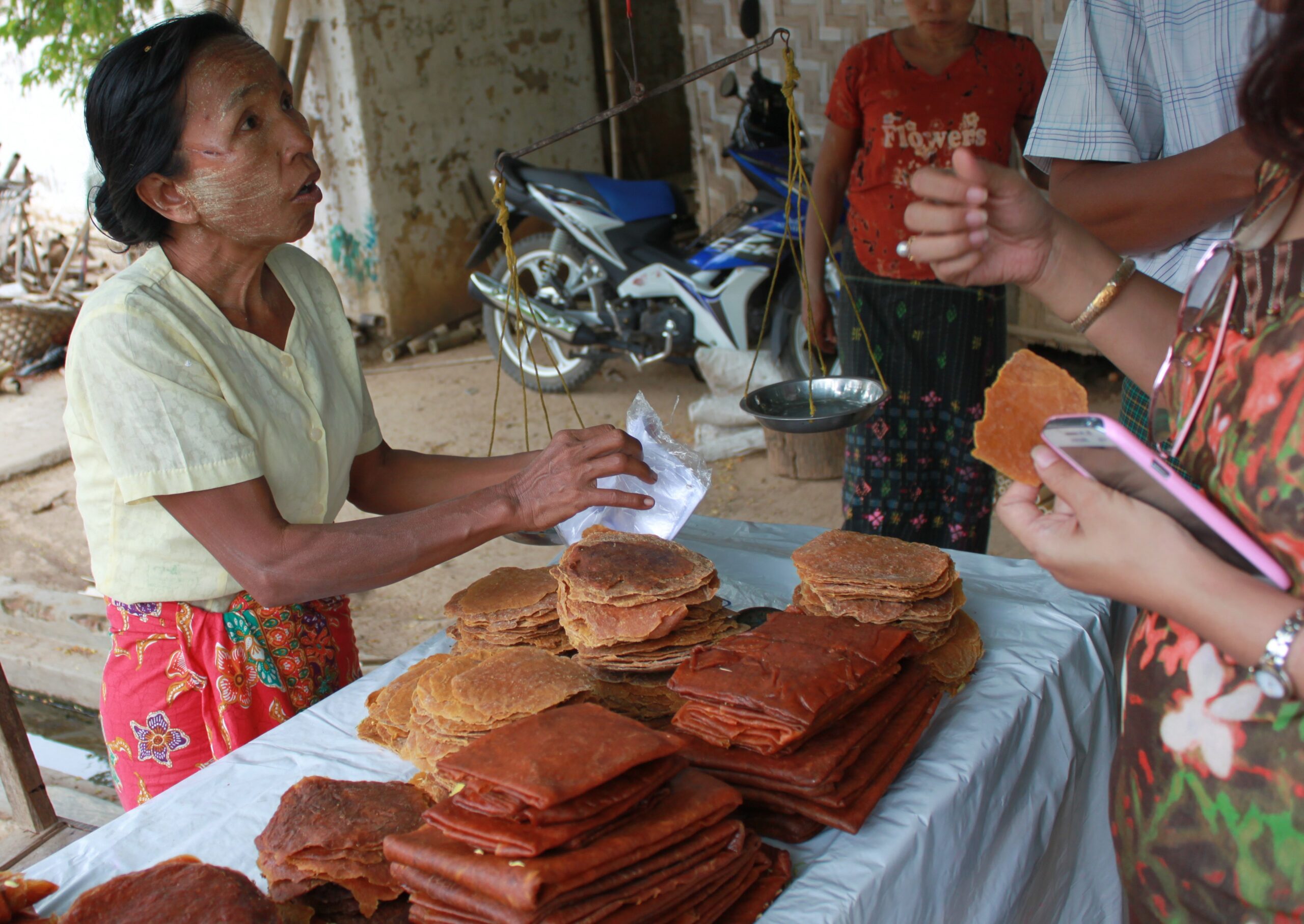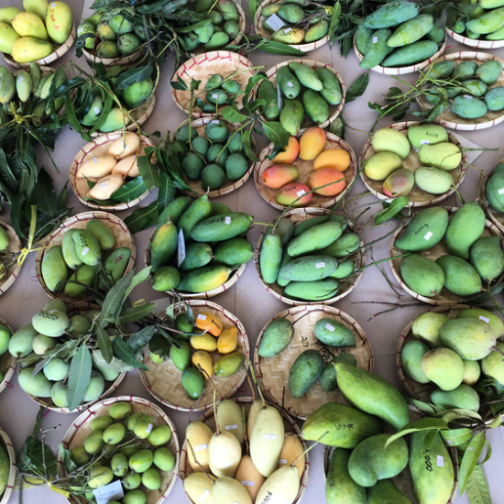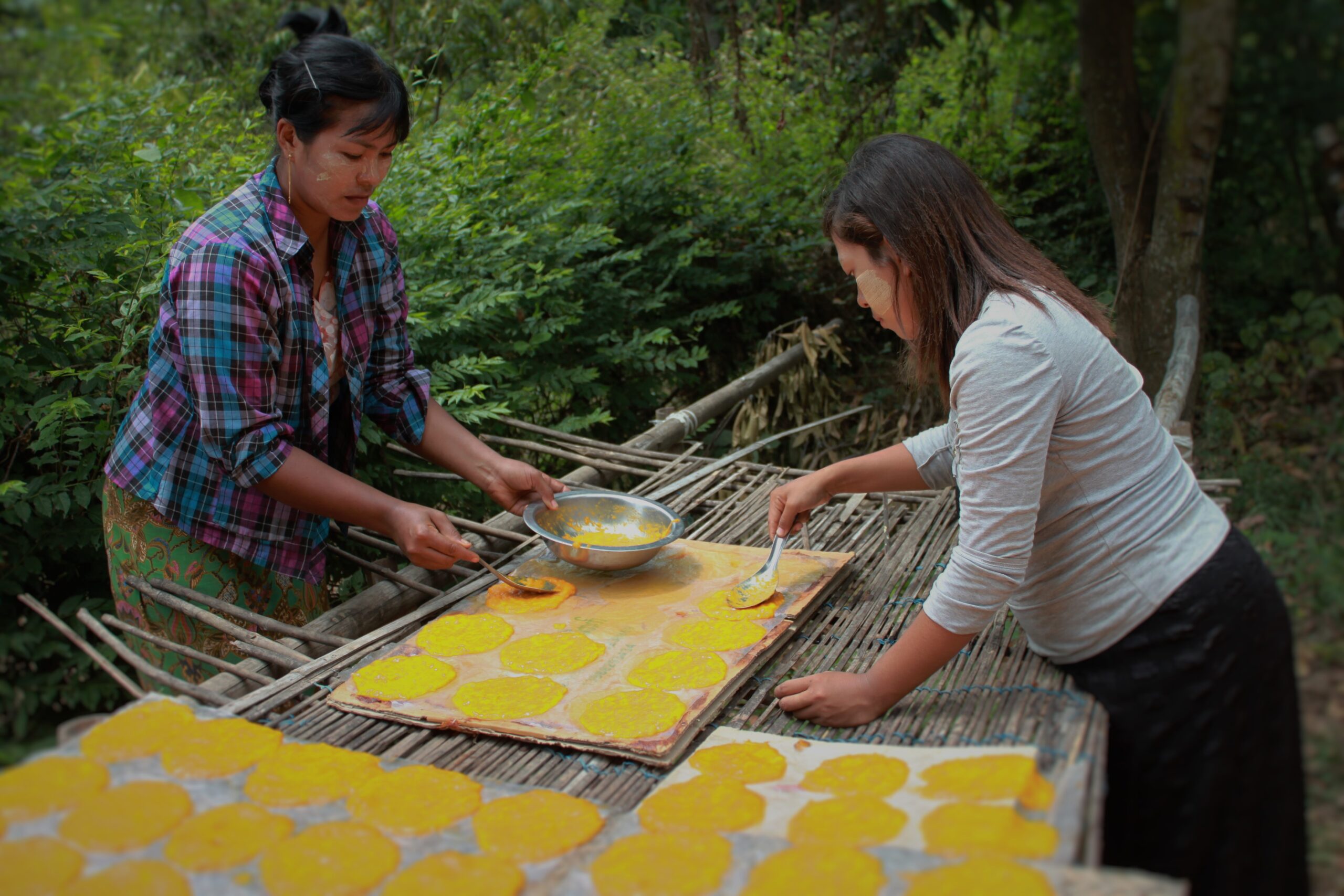
Volunteer Post
Enhanced Market Opportunities for Mango Farmers in Burma
Farmer-to-Farmer training enables farmers to improve post-harvesting handling and food safety practices
October 16th is World Food Day, a day to promote awareness and action for those who suffer from hunger and a lack of food security. Through USAID Farmer-to-Farmer program, Winrock volunteers are helping contribute to #ZeroHunger by sharing their expertise in sustainable agriculture methods and post-harvest loss reduction. Their efforts help smallholders increase productivity and income, empower themselves by forming cooperatives, and increase resiliency by diversifying the products they are able to sell. Continue reading to learn about a recent success story that embodies the efforts behind World Food Day and #ZeroHunger.
There are more than 400 mango varieties mangos in the world, and Myanmar is home to over 190 varieties with a distinct taste, color, and shape. In 2016, one F2F volunteer evaluated 132 varieties from four regions of Myanmar, 19 of which were determined to have commercial potential. Farmers in the Mandalay Mango Farmer Group subsequently received technical training from two F2F volunteers, Mr. Brian Flanagan, and Dr. Martin Lo, on improved post-harvest handling and processing techniques and food safety standards.

Mr. Flanagan introduced easy-to-adopt integrated pest and disease management strategies and orchard management practices to improve profitability and market access. Since the training, mango farmers are using coated paper bags to pack fruits on trees to protect them from fruit flies and are pruning branches that show signs of disease or damage. Farmers are not using any pesticides when packing the fruits with paper or plastic bags. U Win Min Than and U Tin Aye, two mango farmers, have been able to decrease annual production costs, by over $400 and by over $850 per year, respectively, due to reduced pesticide use and better pruning practices. U Win Min Than states, “I could reduce costs using pesticides for mangos and follow the pruning steps. Since I don’t need to use a lot of pesticides, it becomes less costly.”
Mr. Flanagan also demonstrated simple, low-cost technologies to enhance the quality of value-added mango products. Ma Nyein explains, “During the training, the volunteer recommended very applicable and affordable post-harvest handling and processing practices like using a solar dryer to dry the mango to improve food safety issues and the quality of mango leather.” The solar dryers are made using locally-available materials, consisting of a steel pot and solar plastic. Based on the training, farmers are now transferring the leather to drying racks as opposed drying them on the ground. Ma Nyein explains that farmers are also getting better prices for their products, “Before the training, one viss of mango leather was 1,000 MMK. Now, one viss is 3,000 MMK by following some post-harvest handling and processing practices including drying practices that were provided by the volunteer to improve the quality of mango leather and dry mango. Therefore, farmers who make mango leather are getting good incomes, including me.”

Adopting these simple post-harvest handling and food safety practices has allowed about 100 farmers (25%) within the Mandalay Mango Farmer Group to obtain Myanmar Good Agricultural Practices certificates from the Ministry of Agriculture, Livestock and Irrigation, which will also help them to sell to more profitable markets. Ma Chan Mya Nyein comments, “I have become focused on food safety and quality after the training. I’m always careful of my fruits … are good quality and safe. Clients also praise that the mangos are in high demand.” In addition, due to farmers’ new connections with the Mandalay Mango Farmer Group, individual farmers have been able to receive better information on market prices, demand, and supply to improve their selling practices.
The Mandalay Mango Farmer Group is also disseminating the volunteers’ training materials. They have copied the materials and have shared them with over 100 farmers in the region. In addition, six female teachers and researchers from the post-harvest technology training center in Mandalay attended the training and are now able to provide improved technical assistance to farmers with questions on post-harvest handling and processing of mangos.

